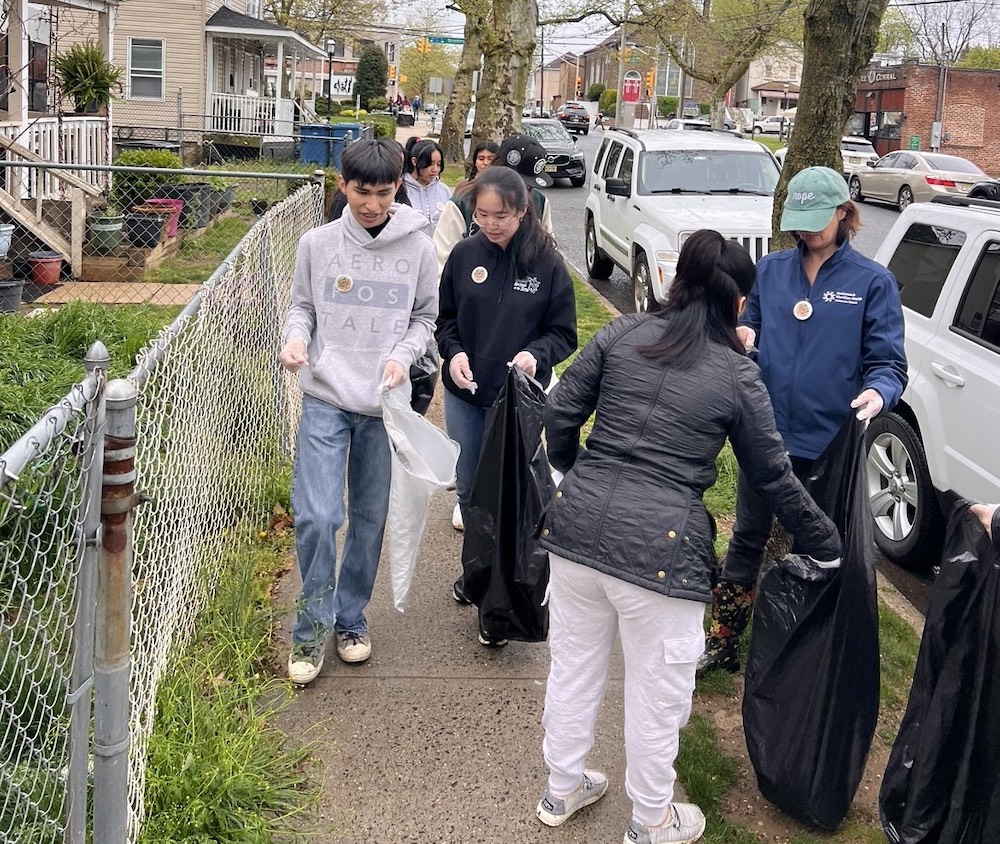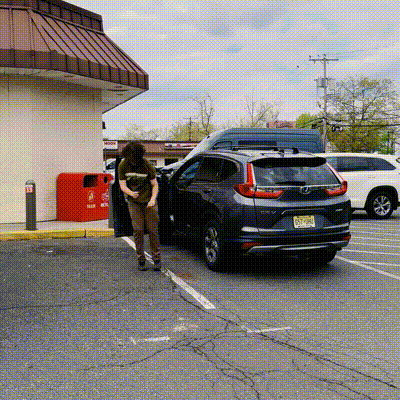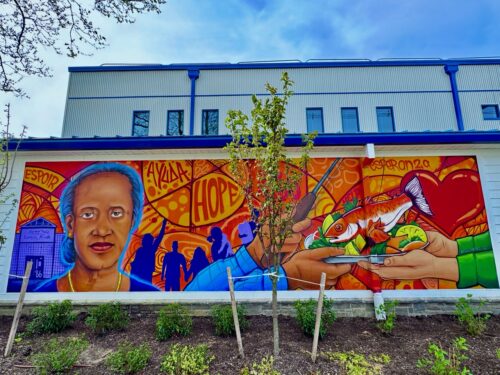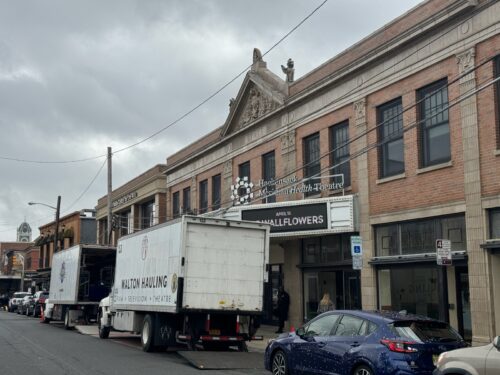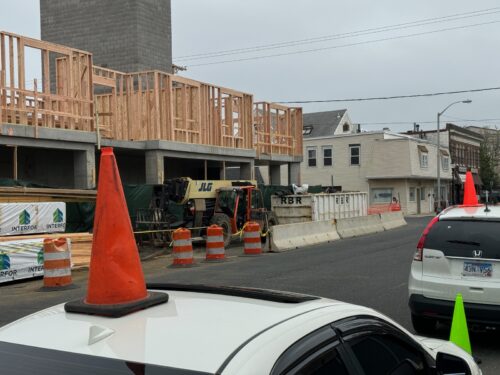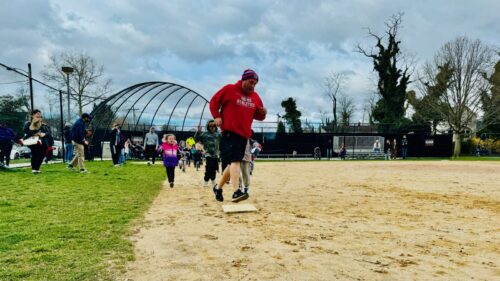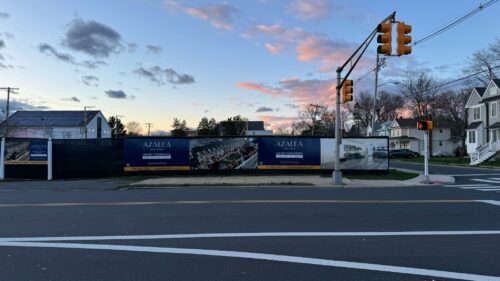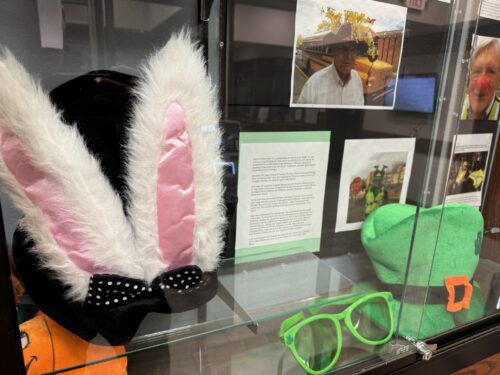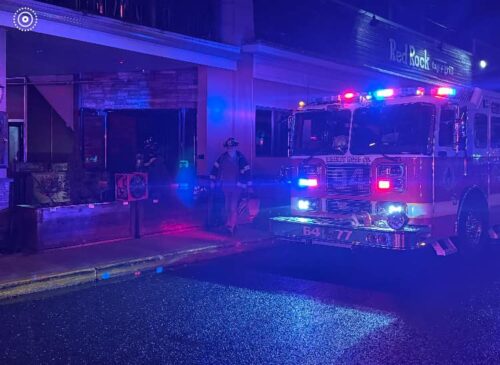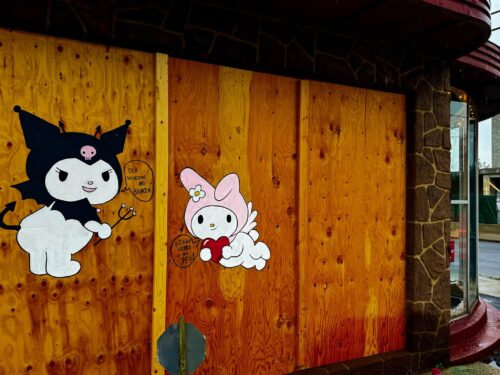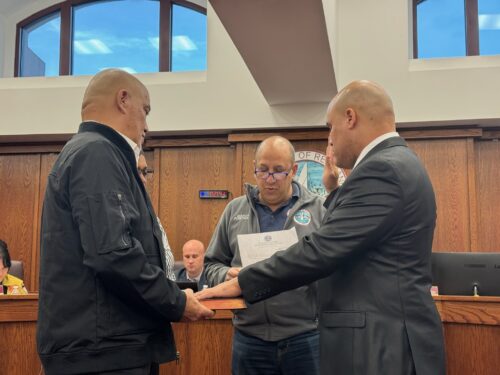
By TOM CHESEK
Time to give the pink slip to those working-class-hero rockers with their too-easy arena anthems. The clock-punching, cubicle-crawling, real-deal working stiff in all his/her “permanent part time” glory has a new musical mouthpiece and it’s a middle aged, mustachioed, suit-and-tie spinner of songs and stories by the name of Ethan Lipton.
Over the course of several indie albums and the odd orphan track, the Brooklyn-based singer, songwriter and playwright is a man whose frankly honest and devastatingly funny sketches of modern millennial life have regularly tweaked and/or tipped such sacred cows as pet lovers, parents, police, the Greatest Generation and the tawdry ritual of the holiday gift basket. It’s all delivered with a certain jaunty good cheer over arrangements that mix lazybones back-porch blues and blue-yodel Americana with hotel-lounge jazz and the many moods of Randy Newman, Warren Zevon or early Tom Waits.
At the same time that he was brewing up his own peculiar musical cup o’ soup, Lipton was honing his craft as a dramatist one of whose plays (Luther) was hailed last June by the New York Times as a “wine-dark satire… both hilarious and horrifying,” and another of whose plays (Red-Handed Otter) recently made its world premiere at the Off Broadway Cherry Lane Theatre.
Somewhere along the line, the California native wed his way with words to songsmithing savvy and the result was No Place To Go, a song-cycle described as “a musical ode to the unemployed” and inspired by the artist’s own experiences with sudden job loss, dislocated self-esteem and whatever dark passenger brings a grown man back to his parents’ doorstep. Commissioned by NYC’s venerable Public Theater, the show made its premiere inside the Public’s Joe’s Pub earlier this year earning its creator an Obie Award, a Village Voice cover and a December trip to the UK, where the work will be seen as part of the annual All Tomorrow’s Parties Festival.
Before that, however, No Place To Go makes itself quite at home inside the Marion Huber “black box” space at Red Bank’s Two River Theater, for an extended engagement that’s being helmed by Leigh Silverman acclaimed director of the show’s run at the Public, and not coincidentally associate artist with the borough-based Two River Theater Company.
The Drama Desk at redbankgreen spoke to Ethan Lipton on the eve of the show’s run of previews a string of performances that begins tomorrow night, October 6, and continues to the doorstep of Opening Night on October 19.

redbankgreen: Having spent some quality time with your soundtrack to NO PLACE TO GO, I’ve got to say that you really nail the way so many of us work, and DON’T work, these days. The whole “permanent part time” thing; the realities of going an entire career without working 40-hour weeks or having access to the things that we’ve been told we’ve “won” as an American worker. I don’t think I’ve ever heard a politician or pundit or lobbyist from either side of the aisle show any understanding of how so many people make their living in this country.
But even at that, the one line in the entire show that really leaps out at me is at the end of the title tune, when you say simply, “I love my job.” You sound very much like you mean it.
ETHAN LIPTON: Ten or fifteen years ago I worked outside of the 40-hour model. I might have been able to afford my own health insurance, but I was kept at just enough hours to keep the company benefits from kicking in. But I liked my job, in that it allowed me to have the time to do the things I wanted to do, without starving.
Even having been burned by the whole latter-day, dastardly corporate process, did you love your job to the extent that you’d go back to it in an instant if they offered to put it back the way it was?
If they’d done it in a way that would have worked for me, I guess I would. The hard thing about ending your time with an employer is when you realize the myths that companies build around themselves particularly the myth of us being a ‘family.’ You’re inundated with that message, and subconsciously you know that it’s not true, that in the end you realize that the company takes care of itself.
So if there’s an evil there, it’s one that’s completely built into the system and really, the higher-ups were pretty nice about most of it.
I know you’ve left yourself a little wiggle room for artistic license, particularly with the part about the employer moving to Mars but can the audience take it on reasonable faith that you actually lived everything that your onstage character goes through in the show?
I’m interested in more than just how things are: I’m interested in how they ‘feel.’ Mars is a perfect example of that. Of course they didn’t actually relocate to Mars, but it might as well have been another planet, it just sort of felt that way. When I’ve taken this show outside of New York, I’m amazed at how many people come up to me with stories about their companies relocating, about how somebody’s seemingly arbitrary decision can shake the foundations of your whole life.
I think what’s probably true of New York versus most other places in the country is that people have always tended to relocate FROM other places TO New York certainly in publishing and media jobs like you’ve worked in. Also in theater and maybe music to a slightly lesser extent…
Yeah, but New York is full of this idea that there are ‘real’ artists who get paid, and a whole lot of ‘aspiring’ artists who don’t make money. And in a lot of cases, the ‘real’ artists aren’t making any money either.
Just because you’ve gotten some traction in those worlds of theater and music, doesn’t mean you’re still able to pay those bills. The reality, most of the time, is that you can’t make a grownup living at theater or music.
Another thing that’s appealing about NO PLACE TO GO is that you, or this slightly fictionalized version of you, are not off the hook here for your problems. You’re hardly a noble victim. In fact you make some foolish moves that don’t help your cause at all. At the very least, you’re guilty of just getting lazy, playing Scrabble instead of fighting the future head-on. Kinda like me!
The show takes its shots at the corporate world, but among my biggest targets is myself: my character my inability to adapt on the fly. I would do a lot of unreliable things, but I never felt like I was being a diva. I thought I’d made a mature choice, that I’d be able to do my art and also pay my bills.
Speaking of adapting, is there anything new or different you’re trying with this Red Bank engagement, compared to the previous production Off Broadway?
For this show in Red Bank, Leigh Silverman, who directed the run at Joe’s Pub, and the Two River Theater people have transformed their black box space into a music club, with cocktail tables and a bar and everything. They’ve built a faux club and they’re calling it ‘John’s Pub,’ after [TRTC Artistic Director] John Dias.
The whole thing is done as a ‘presentation’ from me and my band, sort of the sense that theater in this case has been given over to the feeling of a music venue.
Looking at some stills of you at work in this show, there’s some sense there that you could be this character, this guy who’s gotten up at an open mic or a karaoke night and just commandeered the stage; a guy who’s been beaten up by circumstances and who’s not gonna surrender the spotlight until he’s delivered his story to the captive audience.
There is a quality of the everyday about what I do. This guy’s not super, or set apart in any way not fancy or famous, not someone with any social standing. In all of my music, really, there’s always been a mixture of absurdity, sentimentalism, and the mundane.
It is still a quantum leap to make, this transition from being a dreamer in a cubicle to someone who can stand in front of a live audience like you do. How did you manage to take those first steps toward doing what it is you do and what exactly do you call the end result?
I had been a playwright for some time. I would write songs every now and then, and perform them in a car, for friends. Eventually I started singing in downtown variety shows I’d go up and sing a cappella, sing the words and leave space for the instruments that I heard in my head.
After a while, musicians would come up to me and tell me that they could ‘hear the arrangements.’ I started working with musicians, even though I was never a musician myself, and eventually the band that we have now came together, out of a bunch of guys whose background was in everything from hard jazz and funk, to bluegrass. They’re all really great at what they do but as far as what to call it, I don’t know. There’s lounge jazz, an element of cabaret and, well, a lot of other things. We’re marketing this as a musical and even that’s not quite right but that’s the curse of the creative life. Everything exists somewhere between what you’ve got, and whatever people want it to be.
No Place To Go presents 12 preview performances (October 6-7, 10-14 and 16-18), opens officially on Friday, October 19 (that performance is SOLD OUT), and continues with a schedule of evening and matinee performances, October 20 through November 4. Tickets are $37 $57 (with a discounted price of $24 for anyone 30 years and younger, plus special bargain-priced limited seating for $20) and are available by calling the TRTC Box Office at 732.345.1400, or visiting the TRTC website for schedule details and availability as well as info on BeforePlay presentations, dinner/show packages and other special-event performances.


